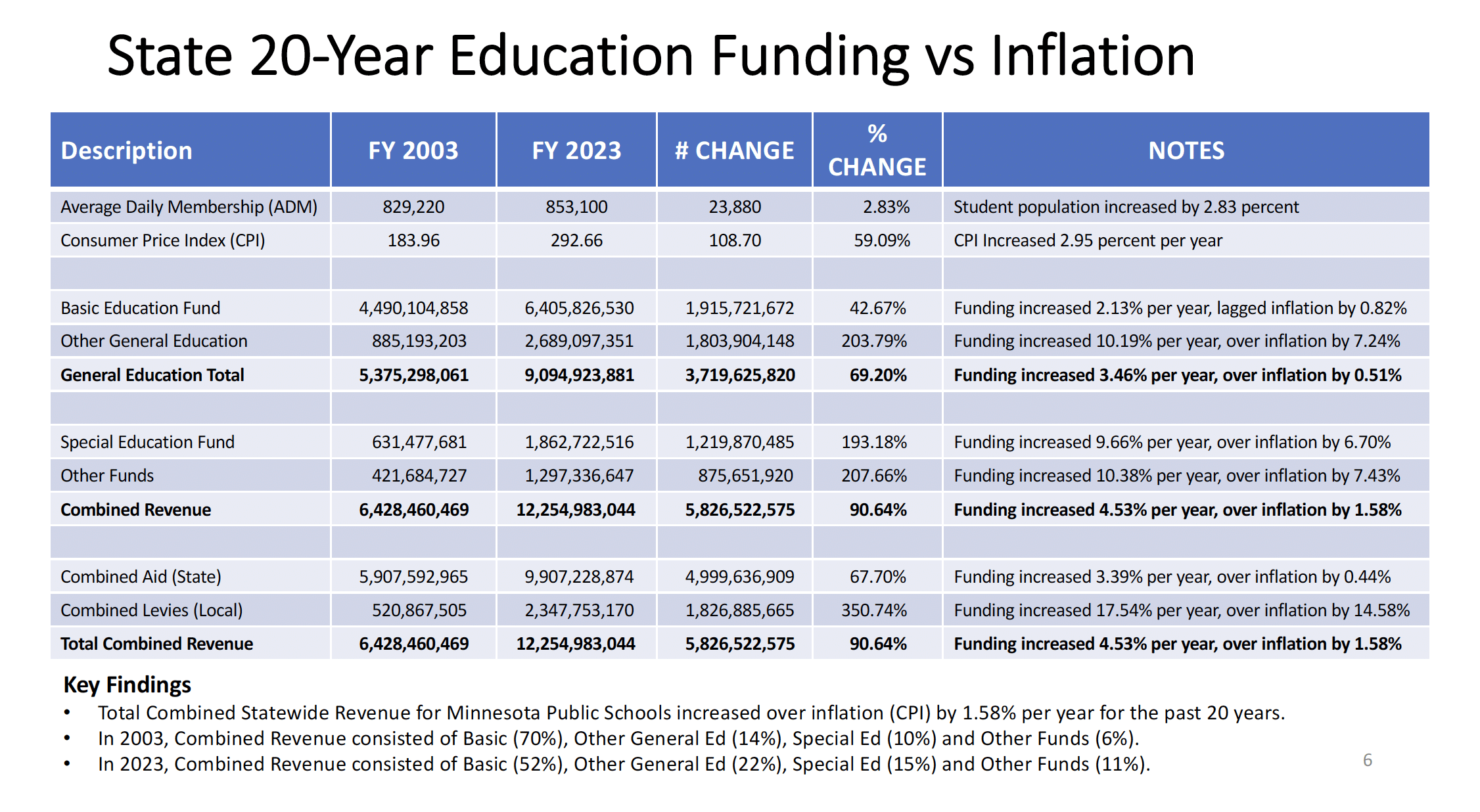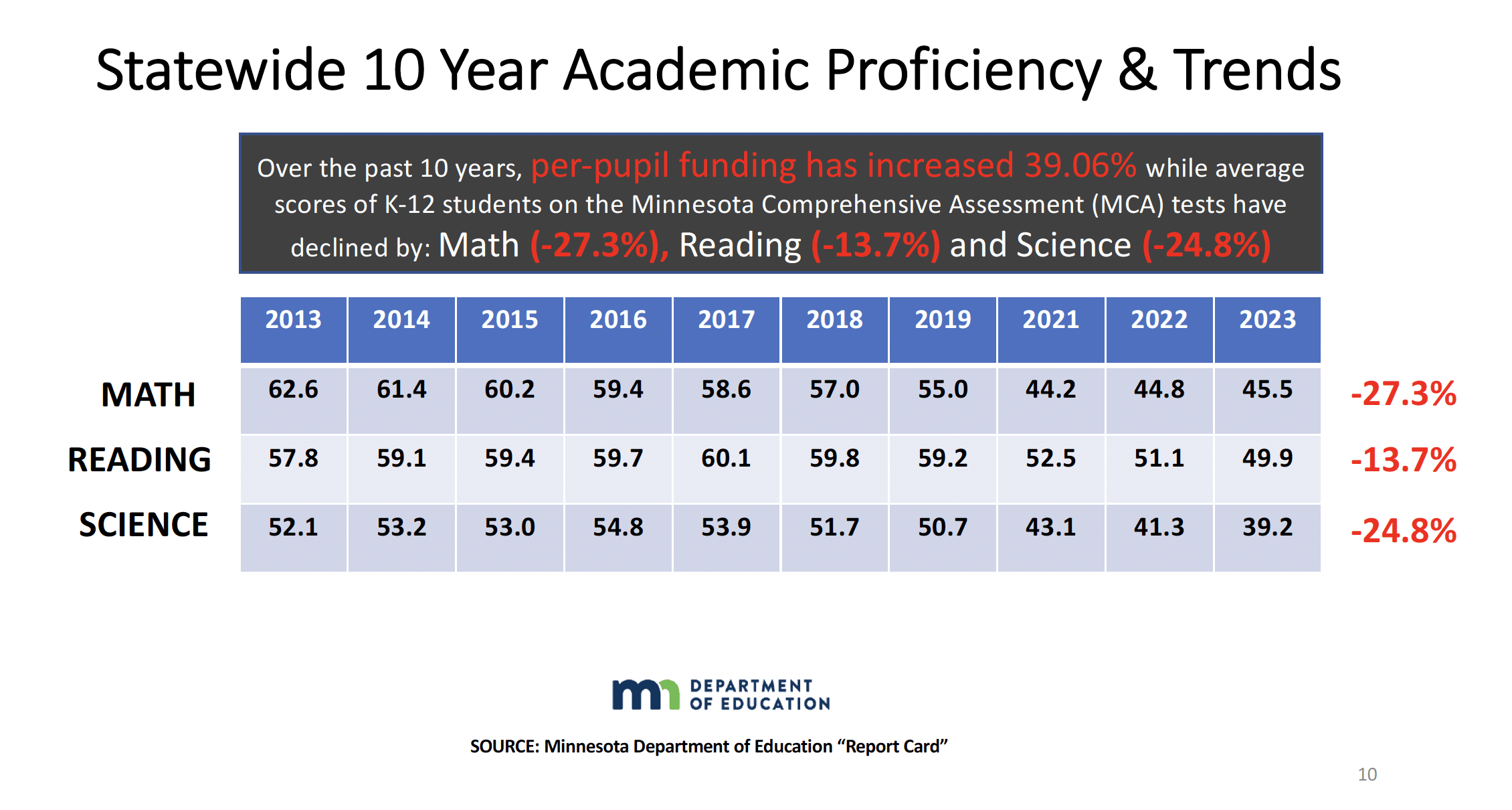An expert in education finance and a local elections advocate have teamed up to help inform school boards, community members, and parents on how their taxpayer dollars are (and are not) funding public education in Minnesota.
Ken Wolf is a recognized expert in education finance after his time serving as a state legislator on the education committee. He began to study and understand school finance while in that role.
“And it took me a year to do that. It is extremely complicated,” Wolf told Liz Collin on her podcast this week.
Bob Fallen, founder of Local Elections Matter, said Wolf knows more about education finance than anyone else in the state. Fallen found himself getting more involved during the COVID-19 pandemic.
“Before you know it, I was an activist. So we created Local Elections Matter to focus on just what it says — local elections, focusing more on city council and school board matters that really resonate with people in the street,” Fallen said.
Local Elections Matter works with organizations like Minnesota Parents Alliance to put together information on school finance.
“We’re focusing on facts because I think sometimes we, meaning the conservative side, we lose because we get emotional because of all this craziness around us. And what I’ve discovered in the months I’ve been working on this is, emotion doesn’t work. You have to focus on facts,” Fallen said.
Fallen and Wolf explained that, even though a large portion of the state’s budget goes to fund public education, student proficiency scores have plummeted.
While many people believe school funding has not kept up with inflation, Wolf said that’s “simply not true.” Combined revenue funding for schools has exceeded inflation by about 1.5 percent per year, Wolf said.

“I think that when we look at the numbers and if we’re successful in battling against the narrative that schools are underfunded, you take it to the next step and show how school funding has actually gone up enormously, but academic proficiency has gone down,” Fallen said. “So that’s the message I think that will resonate with people regardless of whether you’re aligned as a Democrat, Republican, or Independent.”
Statewide funding on a per-pupil basis over the last 10 years has increased by 39 percent, the pair explained. But in Minnesota, math scores are down 27 percent, reading scores are down 13 percent, and science scores are down almost 25 percent, Fallen said, referencing Minnesota Department of Education statistics.

School boards try to blame lower test scores on COVID-19, but the numbers began to drop well before the pandemic, Fallen explained.
“We’ve done it on a district-by-district basis. And the numbers are shocking. We see double-digit decreases before the pandemic,” he said.
Much of the education spending in the last legislative session went to free breakfast and lunch, summer unemployment for hourly workers, and lowering the teacher retirement age, rather than education programs, Wolf said.
Fallen pointed out that districts are now paying DEI specialists as well, a position that didn’t exist until recently.
Wolf creates district-specific spreadsheets to show where the state funds go within each district. Then Fallen takes those financial numbers and compares them with student performance in each district, to “show them very clearly how there’s no connection between increased spending and student performance,” he said.
This information is shared with school board candidates to give them detailed numbers on their district.
Fallen said, “I believe this subject, education and education finance and academic proficiency, should be the number one subject for our next state and national elections. We have to fix this.”

















